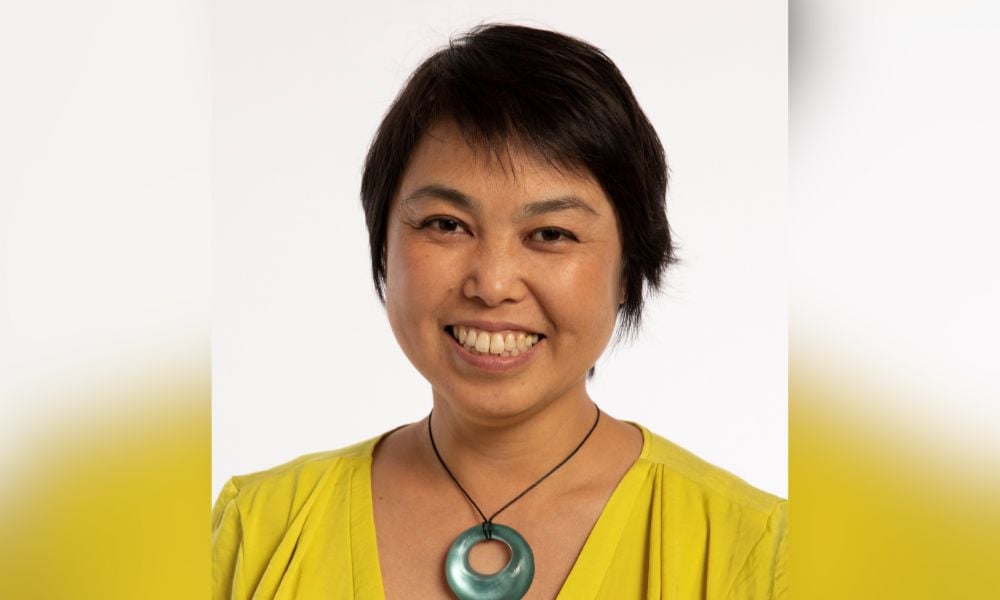
'Have we been relying on that a bit too much in order to make our decisions?'

Ontario’s Bill 149, if passed, will make the province the first in Canada to ban “Canadian work experience” in job postings and application forms, following previous legislation that prohibited regulated professions from requiring the experience.
While the legislation would be a definite positive step towards reducing barriers for newcomers to Canada attempting to work in their chosen fields, it still leaves space for unconscious bias in the form of soft skills.
“I don't disagree with the importance of these so-called skills, but screening people for soft skills can be tricky,” said Izumi Sakamoto, associate professor at the University of Toronto’s Factor-Inwentash Faculty of Social Work and faculty affiliate of the Munk School of Global Affairs & Public Policy.
For almost 20 years Sakamoto has been researching how immigrants integrate into the Canadian workforce, and for years has been a proponent of eliminating Canadian work experience from job requirements.
In its The Future of Jobs Report 2023, the World Economic Forum (WEF) named the most desired core skills as reported by employers, and soft skills comprised the top nine skills, excepting “technological literacy” at number six.
Analytical thinking topped the list, followed by creative thinking at number two, and resiliency, flexibility and agility were the third most integral skills named by organizations.
“Soft skills matter more, it's been argued, because that's something that really shows how people can fit into the workplace in Canada,” Sakamoto said. “Over the past 10 years, the importance of soft skills seems to have increased quite a bit, and it seems the pandemic really pushed the discourse on soft skills even further.”
But unconscious bias can show up in hiring and promotion processes when immigrant job hopefuls might not meet the expectations of hiring managers who have a narrow view of what an ideal candidate should do and say, he said.
Typical “Eurocentric” markers of good communication or confidence, such as sitting up straight and making eye contact, could be a challenge for candidates for whom those behaviours don’t come naturally, including those on the neurodiverse or Autism spectrum, she said.
“When they don't do that, then they might be marked down on communication skills, even if they have excellent communication skills in other areas,” Sakamoto said. “My fear about focusing too much on soft skills is that judgment is made prematurely and on the surface level … which may or may not refer correctly to what's underneath in terms of communication, leadership, teamwork, time management.”
A survey released earlier this month by non-profit ComIT revealed that well over half (61%) of Indigenous Canadians surveyed said they have experienced bias when applying for jobs. And it doesn’t get better once they are employed; almost 60% said they have experienced discrimination in their current workplaces, and 61% think they’re less likely to be promoted because they are Indigenous.
This boils down to affinity bias, said Grace McDonell, employment and human rights lawyer at Fasken Martineau DuMoulin in Toronto. Unconscious bias is difficult to address, but employers and HR need to take the steps in their organizations to do so, or consequences could be costly.

“It's of course a part of human nature that we build connections on forms of likeness,” said McDonell. “However, it just opens the door for the potential for liability, in terms of discrimination.”
The idea of a candidate being a “good fit” for a team or a project can be problematic, she said, because the ambiguity of the parameters of fit make it too easy for discriminatory bias to creep in. Therefore, standardized processes and requirements for hiring and promotions are necessary.
“When we say ‘fit’, it's important for employers to ask themselves, ‘What do we mean by that, and who has decided what fit is? And what do those people look like? And what do those people sound like?’ And if they all look and sound the same, then there’s some internal searching that needs to occur, to determine what the processes look like,” said McDonell.
“When we hear the word ‘fit’, we need to remember and open our minds to who does that include and have we been relying on that a bit too much in order to make our decisions? That's why these decisions around hiring and promotions should be based off objective criteria.”
Although the Ontario Human Rights Commission released policies and best practices on removing Canadian work experience from job requirements over ten years ago, professional bodies have been slow to adopt the practices. For example, Professional Engineers of Ontario required a level of Canadian work experience from applicants until 2023.
Although immigrants to Canada are statistically better educated than their Canadian counterparts, the effect of discriminatory hiring and bias has caused them to be funnelled into jobs that they are forced to take while they await tedious barriers to employment in their professional fields.
This can be seen in health care, where foreign-trained doctors may pass entry exams but get stalled when the required residency has no openings, sometimes for long periods.
New immigrants to Canada also experience bias, with many facing barriers when job applications remain unanswered, even in industries that are desperate for workers such as health care; StatsCan has reported that only 36.5% of foreign-trained nurses were working in that field in Canada, and 41% of foreign medical degree holders were working as doctors.
“You might be burning up your savings, and you might have brought your family, and you need to start pursuing Plan B,” Sakamoto said. This can result in physicians working as medical technicians or nurse’s aides, for example – a common occurrence.
“For too long, accreditation bodies have acted as gatekeepers in terms of who can practice in their own fields, and some bodies were more flexible, where they have changed their procedures more quickly. Some others are more rigid.”
Unconscious bias can also occur in the HR office, manifesting in many forms such as discounting immigrant candidates who aren’t from an ambiguous list of “acceptable” international universities, or who have an accent that may signal less credibility.
Concrete steps HR can take to address unconscious bias include training, standardized hiring processes, and making sure any soft skills listed for job openings are truly necessary.
“This is one of those things where it needs to happen on an ongoing, continuous basis; it's not just a one-stop-shop,” said McDonell.
“It's every year looking at your processes, looking at your procedures: ‘How are we doing with our equity, diversity and inclusion, are we seeing issues with retention, why is there a particular group of employees that we're not as successful with?’ One way to do that, of course, is what we recommend in terms of a best practice, is to just go through the training with your team, because in doing that you strengthen all together.”